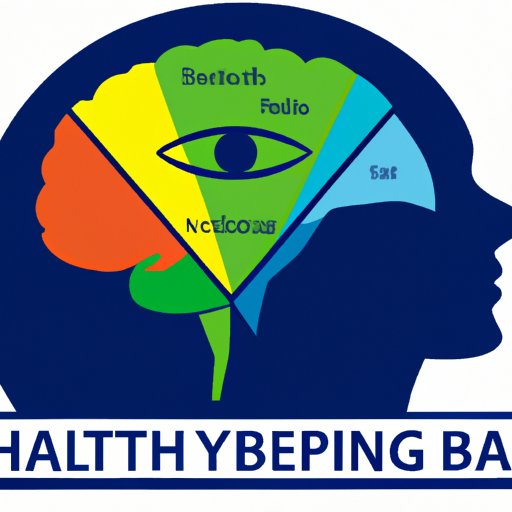Introduction
Behavioral health services are an important part of mental health care. They provide individuals with resources, tools, and support that can help them better manage their mental and emotional well-being. Understanding what these services entail and how to access them is key for those seeking to improve their overall mental health.
Definition of Behavioral Health Services
The Substance Abuse and Mental Health Services Administration (SAMHSA) defines behavioral health services as “a range of services delivered by qualified professionals to individuals, families, and groups affected by mental illness and/or substance use disorders.” These services are designed to help individuals develop coping strategies and skills to better manage their mental and emotional health.

Overview of How Behavioral Health Services Can Help
Behavioral health services can help individuals in many ways. These services are tailored to meet the needs of each individual, providing them with the support and guidance they need to reach their goals. Through a combination of talk therapy, medications, and other interventions, individuals can learn to better understand and manage their thoughts and emotions. This can lead to improved mental and emotional well-being, better relationships, and increased self-awareness.

Types of Behavioral Health Services Available
There are several types of behavioral health services available. The type of service best suited to an individual will depend on their specific needs and circumstances. Some of the most common types of services include:
Outpatient Therapy
Outpatient therapy involves regular visits to a therapist or other mental health professional. During these sessions, individuals can discuss their thoughts and feelings and receive guidance and support. Outpatient therapy is typically recommended for individuals who have mild to moderate symptoms of mental illness or addiction.
Residential Treatment
Residential treatment is a more intensive form of treatment that involves living at a facility for a period of time. During this time, individuals will receive 24-hour care and participate in various therapies and activities to help them manage their mental health. Residential treatment is typically recommended for individuals with severe or complex mental health issues.
Intensive Outpatient Programs
Intensive outpatient programs (IOPs) are similar to residential treatment but involve fewer hours of treatment. IOPs may involve attending group or individual therapy several days a week for up to 8 hours a day. This type of treatment is often recommended for individuals who need more support than outpatient therapy but don’t require full-time residential treatment.
Medication Management
Medication management is a type of behavioral health service that involves working with a psychiatrist or other medical professional to ensure that medications are used safely and effectively. This may involve adjusting dosages, changing medications, or monitoring side effects. Medication management can be helpful for individuals taking multiple medications or those who need assistance managing their medications.
Crisis Intervention
Crisis intervention is a type of behavioral health service that is used to help individuals in crisis. This may involve talking to someone who is having suicidal thoughts, providing support to those who have experienced trauma, or helping individuals who are in danger of harming themselves or others. Crisis intervention is typically short-term and focuses on providing immediate relief and safety.

Benefits of Behavioral Health Services
Behavioral health services can offer a variety of benefits for individuals. Some of the most common benefits include:
Improved Mental and Emotional Well-Being
Behavioral health services can help individuals improve their mental and emotional well-being. Through counseling and other therapies, individuals can learn to better manage their thoughts and emotions. This can help reduce stress and anxiety and lead to improved mood and overall well-being. According to a study published in the journal Psychotherapy Research, “Counseling was associated with significant reductions in depression, distress, and anxiety, and with significant increases in self-esteem, quality of life, and satisfaction with life.”
Increased Self-Awareness
Behavioral health services can also help individuals gain a better understanding of themselves. Through counseling and other therapies, individuals can explore their thoughts, feelings, and behaviors and gain insight into why they act the way they do. This can help individuals become more aware of themselves and their needs, leading to improved self-esteem and self-understanding.
Improved Relationships
Behavioral health services can also help individuals improve their relationships. Through counseling and other therapies, individuals can learn to better understand and communicate with others, as well as manage conflict and difficult emotions. This can lead to healthier relationships with family, friends, and partners.
Reduced Stress and Anxiety
Finally, behavioral health services can help individuals reduce their stress and anxiety. Through counseling, individuals can learn healthy ways to cope with their worries and fears, leading to improved mental and emotional health. According to a study published in the journal Psychotherapy Research, “Counseling was associated with significant decreases in stress, worry, and rumination.”
Identifying the Best Providers for Behavioral Health Services
When looking for a provider for behavioral health services, it’s important to research their credentials and references. It’s also important to understand your insurance coverage and make sure the provider is covered. Finally, it’s wise to schedule an initial consultation to make sure the provider is a good fit.
Researching Credentials and References
It’s important to research the credentials and references of any provider you’re considering. Look for providers who are licensed and certified in their field, as well as those who have experience working with individuals with similar needs. It’s also a good idea to ask for references from previous clients to get a better idea of their experience.
Understanding Insurance Coverage
It’s also important to understand your insurance coverage and make sure the provider is covered. Most insurance companies cover some form of behavioral health services, but it’s important to check with your provider to make sure. If the provider is not covered, it’s important to understand the out-of-pocket costs associated with the services.
Scheduling an Initial Consultation
Finally, it’s wise to schedule an initial consultation with any provider you’re considering. This will give you the opportunity to ask questions and get to know the provider before committing to any services. It’s important to make sure you feel comfortable and supported by the provider before continuing with treatment.
Common Conditions Treated by Behavioral Health Services
Behavioral health services can be used to treat a wide range of conditions, including:
Depression
Depression is a common mental health condition that affects millions of people worldwide. It can cause a variety of symptoms, including sadness, fatigue, difficulty concentrating, and changes in appetite. Behavioral health services can help individuals manage their depression by providing counseling, medication management, and other interventions.
Anxiety Disorders
Anxiety disorders are another common mental health condition that can cause a variety of symptoms, such as fear, restlessness, irritability, and difficulty sleeping. Behavioral health services can help individuals manage their anxiety by providing counseling, relaxation techniques, and other interventions.
Substance Abuse and Addiction
Substance abuse and addiction can cause a variety of physical and psychological symptoms. Behavioral health services can help individuals manage their substance use by providing counseling, medication management, and other interventions.
Eating Disorders
Eating disorders can cause a variety of physical and psychological symptoms. Behavioral health services can help individuals manage their eating disorder by providing counseling, nutrition education, and other interventions.
How to Access Behavioral Health Services
Accessing behavioral health services can seem daunting, but there are several ways to find the help you need. These include:
Contact Your Primary Care Physician
Your primary care physician can be a great resource for finding behavioral health services. They can provide referrals to therapists, psychiatrists, and other providers, as well as provide information about insurance coverage and payment plans.
Seek Referrals from Friends and Family
Friends and family can be a great source of referrals for behavioral health services. Ask around to see if anyone you know has had a positive experience with a particular provider. This can be a great way to find a provider who is reputable and experienced.
Use Online Resources
There are also several online resources available to help individuals find behavioral health services. Websites like BetterHelp, TalkSpace, and Psychology Today provide directories of providers, as well as information about insurance coverage and payment plans.

Understanding the Costs of Behavioral Health Services
The cost of behavioral health services can vary depending on the type of service being provided and the provider. Generally speaking, the cost of services can be broken down into three categories: out-of-pocket expenses, insurance coverage, and payment plans.
Out-of-Pocket Expenses
Out-of-pocket expenses are the costs that are not covered by insurance. These costs can vary depending on the type of service being provided and the provider. It’s important to understand the out-of-pocket costs associated with any service before committing to it.
Insurance Coverage
Most insurance companies cover some form of behavioral health services. It’s important to check with your insurance provider to understand what services are covered and what your co-payments and deductibles will be.
Payment Plans
Many providers offer payment plans for those who are unable to pay out-of-pocket expenses. It’s important to ask the provider about their payment plans to determine if they are an option.
Conclusion
Behavioral health services can be a valuable resource for individuals seeking to improve their mental and emotional well-being. These services provide individuals with the tools, resources, and support they need to manage their mental health. By understanding the types of services available, the benefits they offer, and how to access them, individuals can take the first steps towards improving their mental and emotional health.
(Note: Is this article not meeting your expectations? Do you have knowledge or insights to share? Unlock new opportunities and expand your reach by joining our authors team. Click Registration to join us and share your expertise with our readers.)
